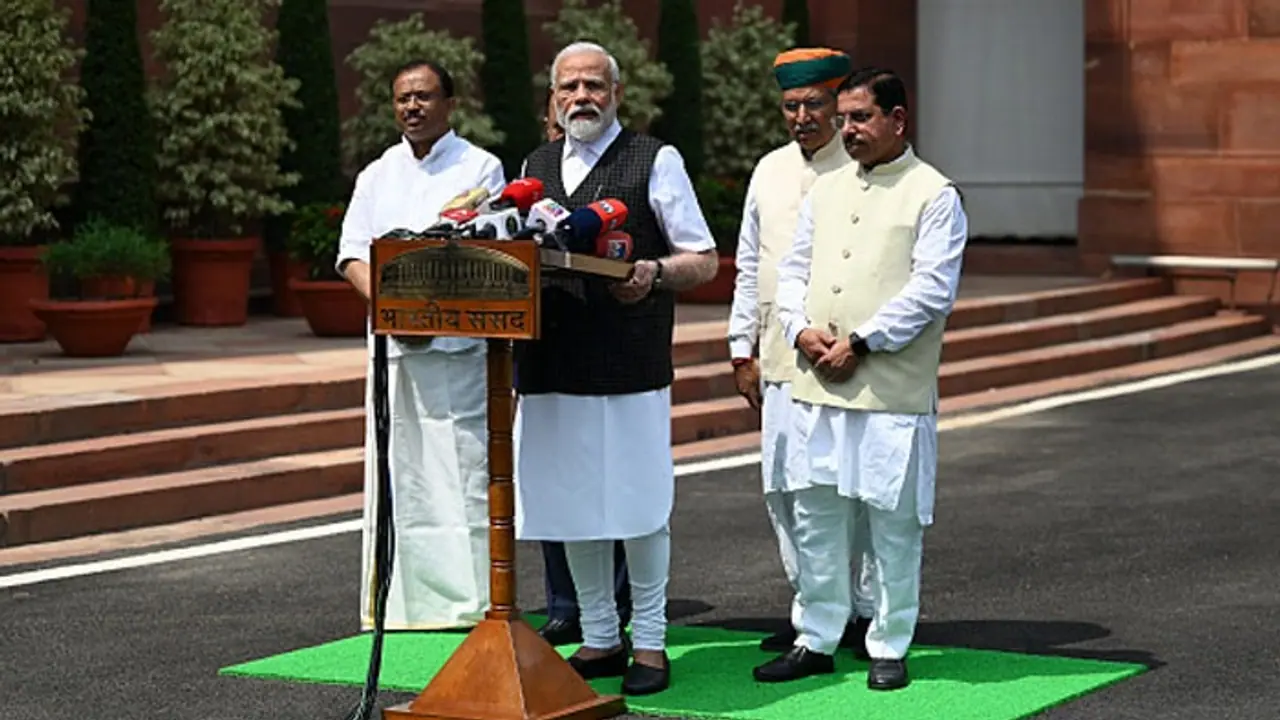The move, to an extent, lends credibility to the speculations over the Narendra Modi government's intentions to bring the 'One Nation One Election' Bill along with a host of other key legislation like the Women's Reservation Bill and the Uniform Civil Code Bill in the special session of Parliament.
The Narendra Modi government on Friday formed a committee under former president Ram Nath Kovind to work on the 'One Nation One Election' Bill, reports said. The move, to an extent, lends credibility to the speculations over the Narendra Modi government's intentions to bring the 'One Nation One Election' Bill along with a host of other key legislation like the Women's Reservation Bill and the Uniform Civil Code Bill in the special session of Parliament convened by it from September 18 to September 22.

The concept of 'One Nation, One Election' has been discussed repeatedly in the past but has never been put into action. The BJP has been advocating for this idea, asserting that it could lead to cost savings and increased efficiency. According to government estimates, implementing the bill could potentially save the exchequer approximately Rs 10,000 crore annually and streamline the Election Commission's electoral processes.
Nevertheless, several challenges must be addressed to realize the 'One Nation, One Election' vision. One significant challenge lies in finding a suitable date for synchronized elections, given that the Lok Sabha and state assemblies follow distinct election cycles, making it a complex task to find a mutually agreeable date.
Another obstacle is the need for a constitutional amendment to enact 'One Nation, One Election.' The government must secure a two-thirds majority in both houses of parliament and approval from at least half of the state legislatures. While the BJP has power in 10 states and forms a coalition government in six others, it holds about 38% of the seats in the Rajya Sabha, potentially complicating the passage of the bill.
Despite these challenges, the government remains optimistic about the prospects of passing the 'One Nation, One Election' bill. It is expected to introduce the bill during a special parliamentary session, with hopes of garnering support from opposition parties.
If successfully enacted, this legislation would mark a significant advancement for Indian democracy, offering cost savings, efficiency improvements, and reduced political instability. Additionally, there is deliberation on the possibility of postponing assembly elections in five states scheduled for later this year, potentially aligning them with the Lok Sabha elections in April-May of the following year. The government is yet to make a final decision on this matter, taking into account the input of the Election Commission and opposition parties.
The five states in question are Rajasthan, Madhya Pradesh, Chhattisgarh, Telangana, and Mizoram, slated for assembly elections later this year, while the Lok Sabha elections are set for the first half of the subsequent year. Speculation surrounds the central government's choice between early elections or postponing the assembly elections to coincide with the Lok Sabha elections in April-May of the following year.
